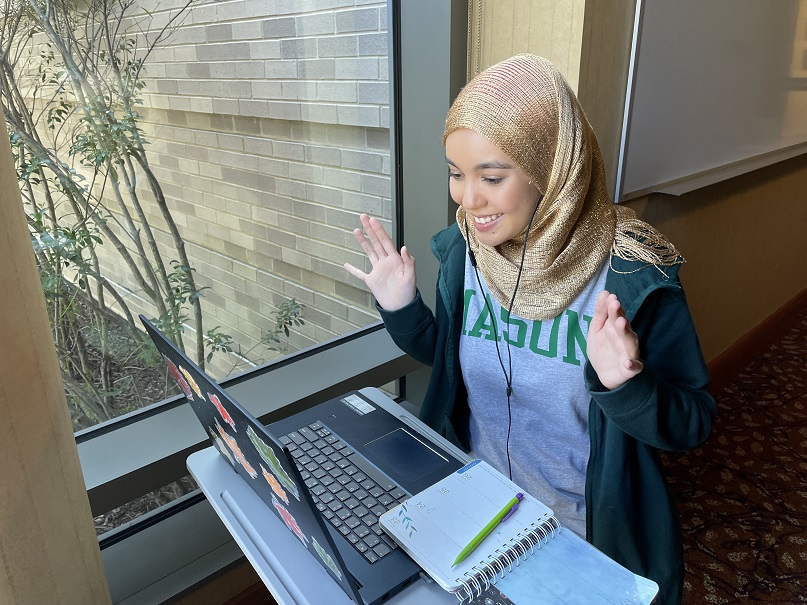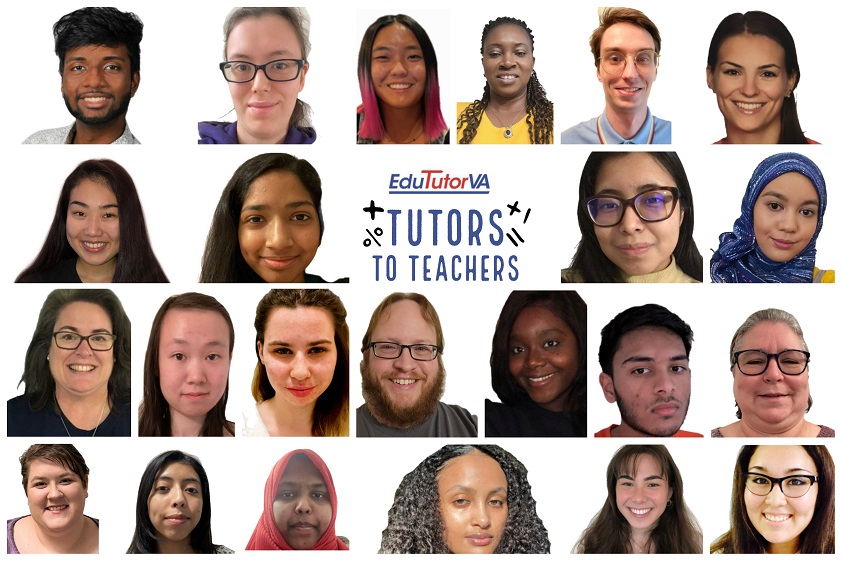
EduTutorVA: A Response to Pandemic Learning Loss
EduTutorVA was founded out of need, the urgent need to address pandemic learning loss. There are some few efforts to ameliorate this tragic situation that affects all our futures. But not nearly enough of them, nor are they rigorous enough to be effective. Our latest small grant recipient stood out for us because of the excellence of its sound pedagogical approach to learning loss.
We sent some questions to EduTutorVA Executive Director Meredith Fortner to learn more about this important response to learning loss:
Kars4Kids: Can you tell us a bit about the children you work with? What’s your demographic? How old are the children in your programs?
Meredith Fortner: We currently serve students from third through eighth grade in twelve Title 1 schools across Virginia. Schools select students who are performing about 12-18 months below grade level. EduTutorVA students are linguistically and culturally diverse, with about 65% of our students being Hispanic or Latino and 75% of all EduTutorVA students are multilingual.
Kars4Kids: EduTutorVA is somewhat new, having been founded as a way to combat learning loss from COVID-19. What are you seeing? What are the specific impacts of COVID on young students?
Meredith Fortner: EduTutorVA began as a response to the educational gaps the pandemic school closures (further) exposed for students placed most at risk. Students are making great progress in our program, but recent national data (data & data) shows that it will take years to recover from pandemic-related learning loss.
Kars4Kids: Tell us about the gaps between white students and students of color in regard to COVID learning loss. Why the disparity?
Meredith Fortner: Students of color; multilingual language learners; and students from low-income households have historically been performing lower on standardized tests than their white peers. Causes of this are likely generational poverty; lack of resources; language barriers; and systems of inequality that still exist in society.
Kars4Kids: How is EduTutorVA combatting learning loss in students struggling to catch up in the wake of COVID? What methods are you using?
Meredith Fortner: We implement a best practice model for an engaging virtual tutoring environment. Students are in groups of two with the same tutor for a full school year. This relationship and mentoring are at the core of the tutoring experience.
We currently design our own language arts and math curriculum using resources from the VA Department of Education, which are aligned to the VA Standards of Learning. For each school, we begin with the school division’s pacing calendars so tutors know the answer to the common question, “What are they learning in class right now?”
We focus on grade-level “power standards”: standards that educators have determined to be of the highest priority and most important for students to learn. We expect that students will need a high dosage of support and scaffolds to reach these power standards. In addition to the VA Department of Education resources, we supplement the lessons with suggested resources from free high-quality online sites, such as Khan Academy videos and virtual math manipulatives.
Kars4Kids: EduTutorVA draws tutors from George Mason University education programs. What are the benefits of this collaboration both for the children and for the university students?
Meredith Fortner: We actively recruit a diverse pool of college tutors who are reflective of the students they teach. We now have tutors from eight colleges and universities across Virginia. Our tutors speak over 20 languages in addition to English. We have started recruiting from our first HBCU in Virginia for the school year of 2023-2024. It is our hope that we are nurturing the future teaching workforce with a diverse pool of talent. Some of our non-education majors have changed majors to education because of this experience; we are so proud of this! Our longer-term objective is both to support students with learning gaps and to encourage a more diverse population to consider teaching as a profession.

Kars4Kids: What is “high dosage tutoring?” How much time do the tutors spend with the children? How many children are benefitting from this program?
Meredith Fortner: High-dosage tutoring takes baseline data on the students, develops instruction tailored to what the student needs, and provides the tutors with thorough training through professional development. EduTutorVA provides virtual tutoring three days per week, in groups of 2-3 students (most are 1:2), for 60 minutes per session, currently. Our fall semester is 8 weeks (24 session hours) and spring semester is 12 weeks (36 sessions), providing students in Title 1 schools with 60 hours of targeted tutoring for the school year. We served almost 200 students in the 2022-2023 school year.
Kars4Kids: Can you talk to us about the pre- and post-testing conducted by EduTutorVA? How is this testing conducted, and what are the benefits?
Meredith Fortner: We measure student progress regularly. Through a partnership with NWEA, we administer the MAP Growth assessment as a diagnostic tool. In addition to the MAP Growth assessment, we also utilize the fall Virginia Growth Assessment and spring Standards of Learning (SOL). Other progress monitoring data points are available to us per our DSAs, but we use NWEA MAP as our common measure. 91% of students who attended at least 50 hours of tutoring with EduTutorVA made growth from the fall Virginia Growth Assessment (VGA) to the spring Standards of Learning (SOL). 75% of students who attended at least 50 hours made two levels of growth.
Kars4Kids: How are you working to identify the students who most need the help of EduTutorVA?
Meredith Fortner: We primarily serve students in Title 1 (low income designation) schools. Schools identify a cohort of students who are about 12 months below grade level benchmarks in math or reading: “Tier 2”, WIDA levels above 1 and 2 for speaking listening, and students not in intensive “Tier 3” interventions throughout the week in school.
Kars4Kids: EduTutorVA operates in Northern Virginia, do you see your program spreading to other parts of the state? Are other higher learning institutions interested in a collaboration between their students and children in need of learning help?
Meredith Fortner: We recruit primarily through George Mason University and Northern Virginia Community College, although as the program has grown, we have hired tutors from eight colleges and universities across Virginia. We now have tutors from Virginia State University, our first HBCU partnership. Because of our model’s potential for scalability, we expect our program to grow across Virginia in the coming years.
Kars4Kids: What are the goals of EduTutorVA, beyond COVID learning loss? Do you see EduTutorVA winning the battle and closing its doors, or is there a need for what you offer beyond addressing the direct impacts of COVID-19 on children’s education?
Meredith Fortner: EduTutorVA’s mission is to advance educational equity and to diversify the next generation of educators. Our goal of recruiting as many diverse tutors as possible is also designed with the long-term goal of creating a more diverse teaching force. We both support students with learning gaps and encourage a more diverse population to consider teaching as a profession. The demographics in our public schools are not always reflected in the teaching workforce; for example, 70% of teachers in Virginia are white. We hope to build a pipeline of educators who have diverse educational, ethnic, and cultural backgrounds.